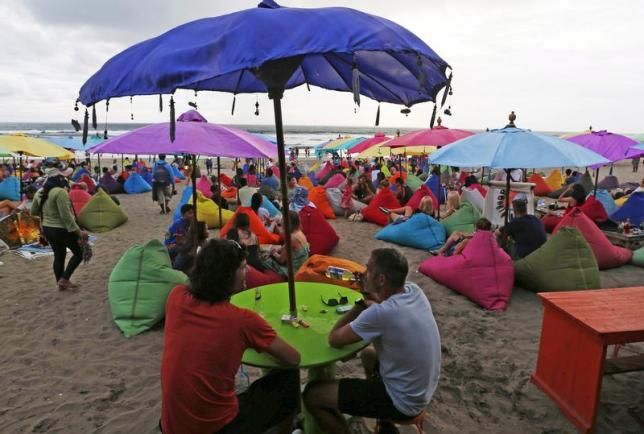 Two Islamic parties have proposed legislation that would ban all consumption of alcoholic drinks and bring jail terms of up to two years for offenders in Indonesia, home to the world's largest Muslim population.
Two Islamic parties have proposed legislation that would ban all consumption of alcoholic drinks and bring jail terms of up to two years for offenders in Indonesia, home to the world's largest Muslim population.
It was not immediately clear how much support there would be for the parties' bill put to parliament, although previous moves to crack down on alcohol consumption have been seen as posturing to appeal to voters before the Muslim fasting month of Ramadan.
A lawmaker for one of the parties said the bill, which could become law as early as the end of this year, was driven by concern for people's health rather than any ideological motives.
"This is not a religious or ideological issue," Abdul Hakim of the Prosperous Justice Party told Reuters. "This is purely for the protection of the children of the nation."
The bill seeks to ban the sale, production, distribution and consumption of all beverages containing more than one percent of alcohol, including local brews such as rice wine that are popular in many parts of the sprawling Indonesian archipelago.
To become law it would have to be signed by President Joko Widodo, who has taken a hard line against drug offenders since he came into office last October.
The proposed legislation banning all alcohol consumption would exempt some locations to protect tourism such as five-star hotels and the resort island of Bali.
Indonesia, which has a population of around 250 million, has seen fast-growing sales of alcoholic drinks such as the Bintang beer brand brewed by PT Multi Bintang IndonesiaTbk, which is majority owned by Heineken.
Other drinks makers with a footprint in Indonesia include Diageo and Carlsberg.
Indonesia is the tenth-largest beer consumer in Asia and has the most Guinness stout drinkers in the region. Beer sales have climbed 54 percent over the past decade.
"Of course I don't agree with it, why would you prohibit someone's hobby to drink? So after banning drinks, what else would they ban? Smoking?" said Diponagara, a 28-year-old worker at a non-government organization in Jakarta.
However, a survey by market researcher Nielsen found that, in 2014, only 2.2 percent of Indonesians over the age of 20 had consumed alcohol in the previous 12 months.
Alcohol consumption is frowned upon by many Muslims in Indonesia and bars are sometimes attacked by vigilante groups, particularly during Ramadan.
A regulation banning the sale of alcoholic drinks at mini-markets will come into force on Thursday, although they will still be sold at supermarkets, hotels, bars and restaurants.
A complete ban would have a devastating effect on the drinks industry and distribution businesses, and put as many as 200,000 jobs at risk, Charles Poluan, executive director of the Indonesian Malt Beverage Producers Association, told Reuters.
"By next year, if it goes through this year, all the tourists won't think it fun anymore to go toIndonesia," he said. "What is ironic is that our neighbor Malaysia has sharia (Islamic) law, but they do not ban the selling of alcohol."
Source: reuters
 В Атырау -10
В Атырау -10